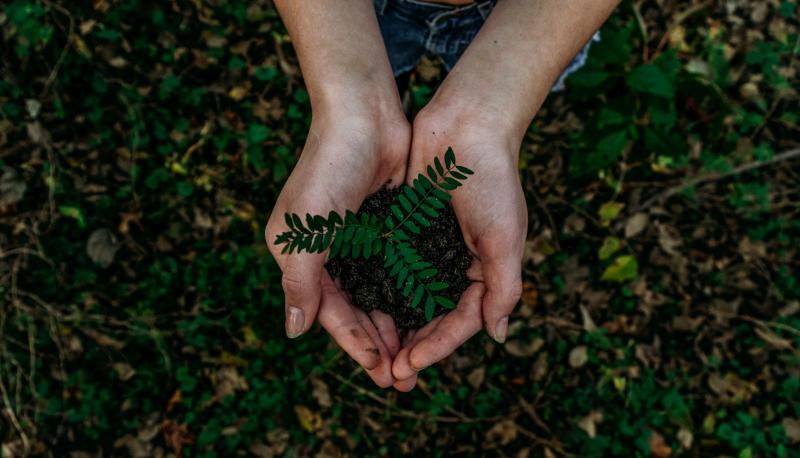Sustainability: What is in a Word
By: Jacob Tucker

Sustainability: a buzz-word that excites environmentalist and corporate CEO alike has reached a pivotal point in its history. In recent times, this term has impressed itself upon social consciousness in a variety of different ways. At times it has brought about monumental change for the good, and at others, it stood as a symbol for the maintenance of an environmentally destructive status quo. While I absolutely agree that sustainability is a massive step in the history of environmental consciousness, I think it is more pertinent than ever that we begin asking ourselves whether or not we live in a world where sustainability is as good as we can do. Not that sustainability is in any way bad, but we must instead ask if we need something more than sustainable at this point in human history. Our future is nothing less than dystopic. We live in an age where jettisoning ourselves into space or to other planets to avoid the effects of global climate collapse seems more realistic than transforming the ways in which we as humans interact with our environment. If at any time we needed something beyond sustainability it is now. To be clear, this does not mean entirely throwing out the principles of sustainability, rather, asking whether or not we are in a position now where sustaining the present level of environmental health is even desired. We live in a world that requires ecological regeneration not simply ecological sustainability, and this means asking ourselves what a kind of post-sustainable world would even look like and how we as humans fit into this world.
Frankly, for most of human history peoples have lived in a manner that not only maintained the present level of environmental health, but actually created stronger, richer, more diverse, and socially meaningful landscapes for themselves and their children. Just as quickly as we are losing our forests, rivers and streams, soil nutrients, and clean air, we are also losing and destroying these much older knowledges that are absolutely necessary if we are to cultivate the kind of world we wish to live in. As of late, terms like stewardship, which comes from an older English term which originally meant to be the guard of one’s home, has been utilized to reinvigorate this desire to care for our home—our Earth. The point I am trying to make is that for most of human history people have not had the idea of ‘Sustainability’, because maintaining and breathing new life into their environment was part of the basic structure of society. In many ways, we have lost this intimacy with our environment, and for that reason, simply accepting sustainability as the ultimate goal is not nearly enough.
If we continue to cling to ideas of sustainability that seek to maintain economic profits at the expense of ecological vitality, then we will fail to both relearn and remember what from our ancestors. We must begin by inverting this outlook, and instead we must see human society and our use of nature’s gifts, as merely a subset of a much larger earthly system.
Ultimately, at this point in human history far too much ecological and social harm has been done on both the Earth and communities to accept the present as the ideal of what we would possibly want moving forward. If sustainability is about maintaining what you have, and there is nothing left to maintain, then it seems like as a concept it becomes devoid of meaning. What is necessary at this point in time is recognizing that our environment, our communities, and in general, our Earth are an interwoven structure that cannot simply be avoided. Post-sustainability fundamentally means to see our environment, and more broadly, our Earth, as the essential condition for all human activity. The purpose of a post-sustainability approach is to see that a human society that aligns itself with the principles of nature is the only kind of society that truly flourishes. It is a combination of the environment with human society, and in effect, with human culture. Just as a healthy vibrant ecological system is one in which abundance reigns supreme and strength emerges from diversity, so it must be for any type of human society enmeshed within a grander ecological system.
In deeper point here is that in many ways sustainability simply does not ask enough change out of human society in order to create the type of world that opens up new possibilities of life for both humans and nature. Only by moving beyond sustainability, towards an understanding that humans and nature are always engaging in a complex give-and-take relationship between one another, can we continue to grow as both a species and planet.
Jacob Tucker is a second-year MA candidate in Economics. As the 2019-2020 CCCESL Community-Engaged Urban Sustainability Fellow, his focuses are on regenerative ecology, sustainability broadly, and diversity in both natural and human systems. Currently, he is working with the Beyond GDP team exploring indicators of both human and ecological well-being that may be integrated at a state-wide level. Jacob’s personal research interests are quite diverse and interdisciplinary, but the epicenter of his research flows from the work within the fields of Marxian Ecology, Feminism, and Environmental Philosophy. Much of this work seeks to understand the historicity of human practices and institutions, specifically, how the idea of ‘human’ became something dissimilar to nature. Outside of academia, Jacob spends much of his time hiking, reading, writing poetry, gardening, and watching Premier League Football. Contact Jacob by emailing jacob.tucker@du.edu or visiting his portfolio page.
